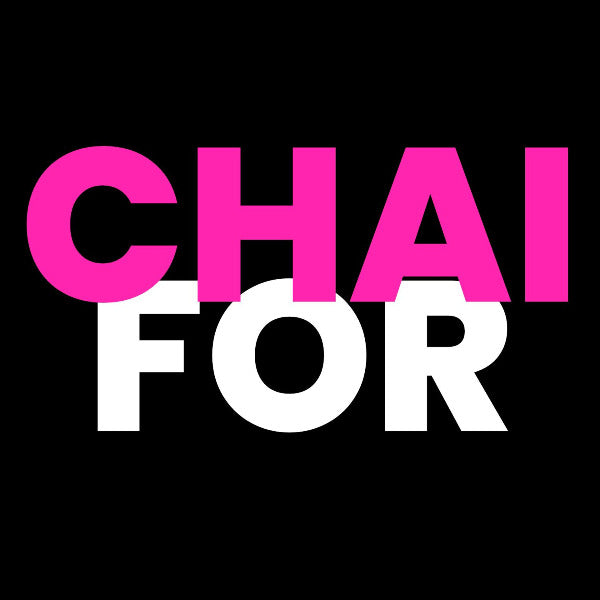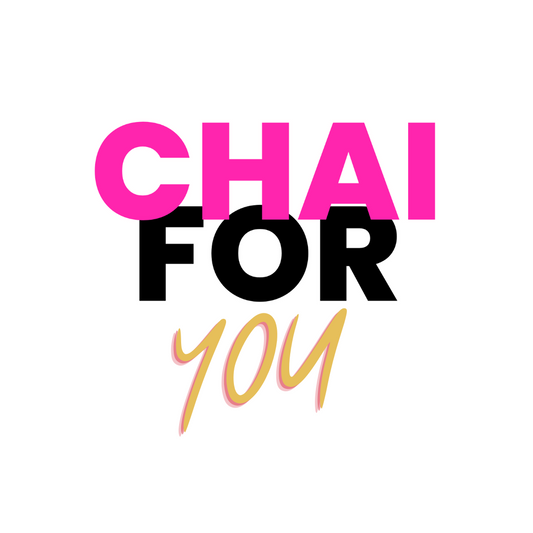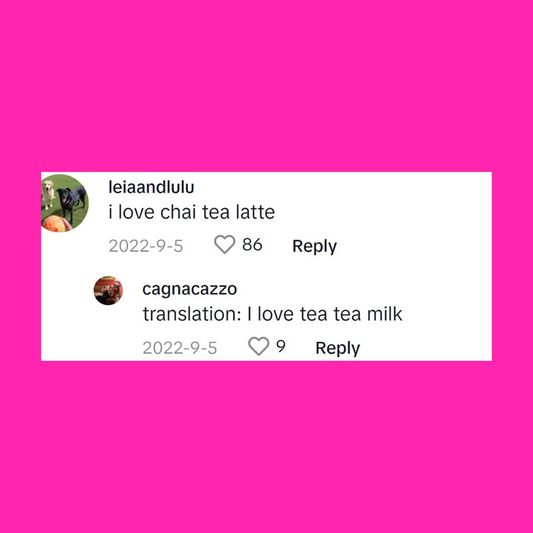The era of the "Chai Tea Latte" is officially over.
Wait, how can a Chai company possibly want to declare the Chai Tea Latte over?
Well, that's just it. Chai For is a chai company; not a chai tea company. When someone uses the phrase chai tea - they're mistakenly calling it "tea tea." One may think this might be a small matter but there's a whole history worth considering.
Read further to learn more
What is Cha?
There is a slight "lost in translation" element to the name chai that has caused world-wide etymological confusion.
In Hindi, the word chai quite simply translates to "tea." The word "chai" - as it is used in America - is derived form the Hindi word "cha" or "sha" or "chaay", represented here in hindi: चाय. This word represents all forms and types of tea - and has been used in language for thousands of years prior to the invention of chai as a spiced milk and tea beverage.
This leave us with one word and two meanings. "Cha" traditionally meaning "Tea" and "Cha" - better known in the U.S. as Chai meaning, specifically, the milky beverage brewed with black tea and spices.
I'll let Pavitr Prabhakar (a.k.a Spiderman) illustrate it...
In fact, across the globe, millions of people in dozens of languages use variations on "cha" to simply mean tea.
There is a general rule of thumb (albeit not an absolute rule), that if the majority of a country's population lives near a sea, the generic word meaning “types of tea” is called tea and if the majority of the population lives inland, it is called cha.

The etymological reality is historically rooted in the Dutch and British East India Trading Company's distribution of tea via the world's sea ports. An important context is that this trade largely occurred via exploitative abuses of people living in tea growing regions in the south pacific and across the globe. In fact, this exploitation ultimately led to the creation of Chai in its form commonly known today (we'll do a separate blog post on that history soon).
How did Chai become known as Chai Tea Latte?
Fast-forward to Seattle, Washington in the mid-1990s. A rapidly growing coffee company was expanding its beverage options outside of its popular coffee options.
From, the Guardian's September 2016 article titled, "Chai latte: the all-conquering beverage causing a storm in a coffee cup", the author wrote "Paul Williams, a former Starbucks brand and marketing manager, remembers discussions about whether to call it a “latte” rather than a tea, because “latte” would confuse coffee drinkers. Starbucks is often labelled as an innovator, but really what they do is take niche products and take them mainstream,” he says.
In this context, Chai was far from niche in its culturally traditional spaces - India, the greater south Pacific. It has already achieve ubiquity there. But in the U.S., before Starbucks' menu release, Chai was largely a counter-culture beverage mostly embraced by health conscious or spiritually inclined communities
As Starbucks added Chai to their menu, they needed a way to make it clear it was a tea and not a coffee. So, they simply added the word "tea" to its name for clarity's sake. Suddenly, the name Chai Tea Latte was born.

Why does the name matter?
Chai is a drink that is essential to Indian social, economic, and historic cultural heritage.
When Starbucks elected to add Chai to their menu - they took this emblematic beverage central to modern and historical cultural life in India and altered it to fit their customer demands. Their blend, delivered via a syrupy concoction of sugar and artificial ingredients emulating (but not quite landing) chai, became the catalyst for the vast majority of Americans becoming familiar with what a wrong version of chai tastes like (and - its actual name).
The psychology of this is important. When an original memory is formed it can easily become " fixed, or consolidated, and [is] no longer easily disrupted." Meaning - when we're taught the wrong thing, we can be stuck permanently thinking the wrong thing even when faced with truths to the contrary clearly presented before us. So, as many Americans who don't have cultural history with Chai have their first interaction is through Starbucks and other coffeeshops using poorly made copies of Chai and calling it Chai Tea, then this also denies Indian society of something central to its culinary and cultural identity.
This is why we are serious about no more chai tea.
We believe that when we resist the messaging and beverages of how mass-produced, commercialist chai - then we can break free from how we think about, speak about, and consume chai. In doing so, we honor its cultural roots while creating the room to fall in love with great chai.
We invite you to help us return Chai - both the beverage and name - right. The best two ways to honor chai? Cut the word "tea" and do your absolute best to find Chai makers - Chai For or otherwise - who work to honor traditional chai making ingredients and techniques while making them accessible to your home kitchen.


